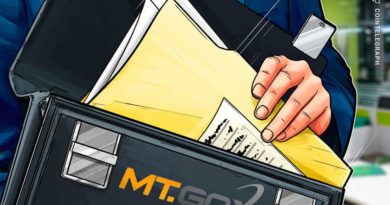Unsealed superseding indictment against Sam Bankman-Fried includes 12 criminal charges
The indictment against the former FTX CEO included an additional charge for conspiracy to commit bank fraud and details on his alleged unlawful political contributions.
The federal judge presiding over the case for former FTX CEO Sam “SBF” Bankman-Fried has ordered a superseding indictment unsealed containing 12 criminal counts.
In the indictment filed with the United States District Court for the Southern District of New York on Feb. 22, U.S. Attorney Damian Williams alleges Bankman-Fried’s actions in the matter involving FTX and Alameda warranted 12 charges. According to the indictment, these included eight conspiracy charges related to fraud as well as four charges for wire fraud and securities fraud.
The original indictment against Bankman-Fried, announced on Dec. 13, included eight similar charges, while the superseding indictment mentions an additional charge for conspiracy to commit bank fraud and breaks down individual wire fraud charges related to his alleged actions at FTX and Alameda. At the time, prosecutors also listed conspiracy to commit commodities fraud in its charges, which was seemingly included in the superseding indictment related to the “purchase and sales of derivatives” at FTX.
According to the indictment, Bankman-Fried committed fraud in opening a bank account and attempting to obtain user deposits:
“[Bankman-Fried and others] falsely represented to a financial institution that the account would be used for trading and market making, even though [he] knew that the account would be used to receive and transmit customer funds in the operation of a cryptocurrency exchange, and thereafter, in connection with using the account for the receipt and transmission of customer funds, omitted material facts in a manner that made what was communicated misleading.”
A new superseding indictment against FTX cryptocurrency exchange founder Sam Bankman-Fried containing 12 charges was unsealed in Manhattan federal court https://t.co/MKmmgW7W01 pic.twitter.com/r9JVKNljDt
— Reuters Legal (@ReutersLegal) February 23, 2023
In regard to the allegations involving unlawful political contributions, the filing said SBF and others used “straw donors” or corporate funds to make more than 300 contributions totaling “tens of millions of dollars.” Using straw donors, the U.S. attorney alleged, allowed Bankman-Fried to “evade contribution limits on individual donations” as enforced by the Federal Election Commission — usually $100.
“While employees at Alameda generally tracked loans to executives, the transfers to Bankman-Fried [and two other FTX executives] in the months before the 2022 midterm elections were not recorded on internal Alameda tracking spreadsheets,” said the filing. “Instead, an internal Alameda spreadsheet noted over $100 million in political contributions, even though FEC records reflect no political contributions by Alameda for the 2022 midterm elections to candidates or PACs.”
The former FTX CEO has largely been confined to his parents’ California home since a December bail hearing, in which his mother and father agreed to put up the equity from their house as part of Bankman-Fried’s $250-million bond. Two employees of Stanford University — research scientist Andreas Paepcke and former law school dean Larry Kramer — also signed on as sureties for Bankman-Fried’s bail for $200,000 and $500,000, respectively.
Related: SBF lawyers to pay for technical expert to aid judge on bail terms
Bankman-Fried’s criminal trial in federal court is scheduled to begin in October, while FTX’s bankruptcy case is ongoing in U.S. Bankruptcy Court for the District of Delaware. Former Alameda Research CEO Caroline Ellison and FTX co-founder Gary Wang pled guilty to similar charges as SBF in a plea deal, with many experts speculating they may offer testimony in his case.




